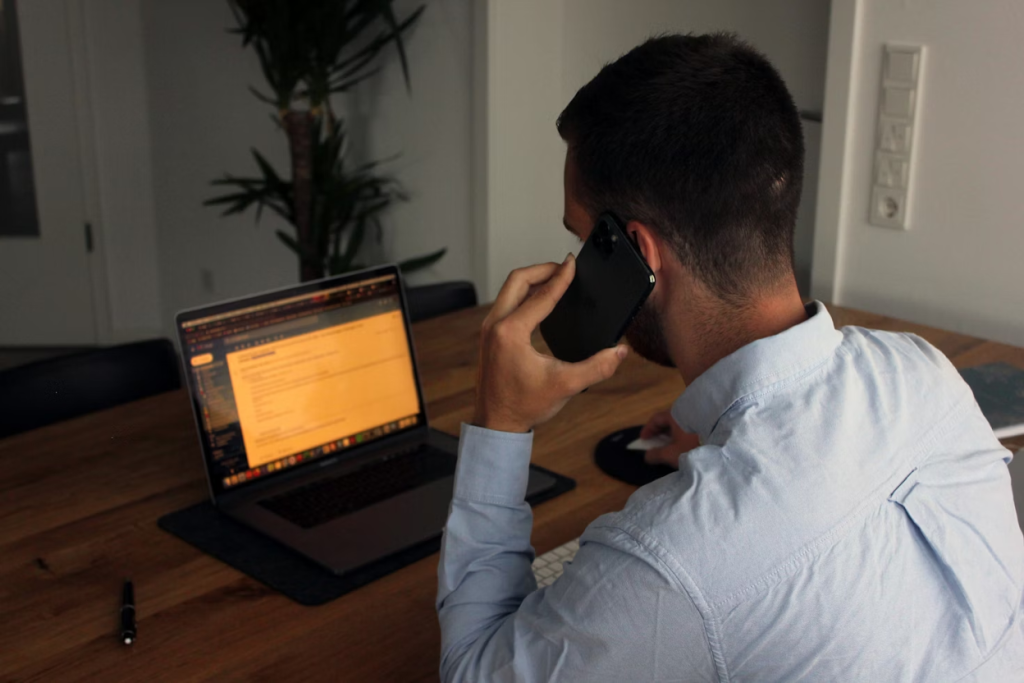- Customer Service 866-837-3065 Make A Payment (866) 558-3328
- Client Portal
- Consumer Support

When invoices go unpaid and accounts age past their due dates, businesses face a critical decision about how to pursue recovery. The collection approach you choose directly impacts how much money you recover, how quickly funds return to your business, and whether customer relationships survive the process.
In commercial debt recovery, three primary collection methods exist, each operating under a fundamentally different model. Understanding the distinctions between first-party collections, third-party collections, and debt buying helps you make strategic decisions that protect both your cash flow and your business relationships.
The wrong choice can mean accepting pennies on the dollar for valuable receivables or damaging relationships with customers who might resume doing business with you after resolving temporary payment difficulties. The right choice maximizes recovery while maintaining the professional reputation your business has worked years to build.
|
Southwest Recovery Services: Get Your Money Back 20+ Years Experience | Texas-Based | Contingency Only – You Pay When We Collect
Built for Commercial Collections:
The Southwest Recovery Difference: ✓ Contingency only – no upfront costs ✓ Veteran collectors with respectful omnichannel outreach ✓ Priority sectors: trucking, logistics, contractors, oil & gas ✓ Clear reporting on account status and outcomes Trust & Results You Need: Nationally recognized ethical collections agency with 12 offices across six states. Compliance-first approach with no threats or guarantees. |
3 Types of Debt Collection
First-party collections are the initial debt recovery efforts conducted directly by the original creditor. When your business sends payment reminders, makes follow-up phone calls to customers, or sends late payment notices from your accounts receivable department, you’re engaging in first-party collection activities.

In first-party collections, your company maintains complete control over the collection process and all communication with the debtor. Your internal team handles every interaction using your company letterhead, phone numbers, and email addresses. The debtor continues dealing directly with the business they originally contracted with, rather than being transferred to an external agency.
This approach focuses on accounts that are 30–90 days past due. During this window, many delinquent accounts can be resolved through gentle reminders, payment plan negotiations, or simple administrative corrections when disputes arise.
Because the original business relationship remains intact, first-party efforts often receive more cooperative responses from debtors who value the ongoing commercial relationship.
First-party collections offer several strategic benefits for businesses with the resources to conduct internal collection efforts. You maintain complete control over messaging, tone, and settlement terms. There are no external agency fees, meaning you keep 100% of recovered amounts. Customer relationships remain direct, allowing you to preserve goodwill for future business opportunities.
This approach works particularly well for businesses with dedicated accounts receivable teams, established collection protocols, and customer bases that respond to internal outreach.
First-party collections face significant constraints that limit their effectiveness as accounts age. Internal staff typically lack specialized collection training and may struggle with difficult debtors.
Collection activities divert valuable employee time from revenue-generating work. After 90 days past due, internal recovery rates decline sharply as debtor responsiveness drops.
Third-party collection agencies are independent companies that pursue debt recovery on behalf of creditors without taking ownership of the accounts. At Southwest Recovery Services (SWRS), we operate under this model, acting as an extension of your accounts receivable team while applying specialized collection expertise.

When you engage a third-party agency, you assign collection rights without transferring debt ownership. The agency contacts debtors using its letterhead and resources, but you maintain final approval over settlement terms and decisions. Most reputable commercial agencies, including SWRS, operate exclusively on contingency-based pricing.
Under the contingency model, you pay nothing up front. The agency only earns fees when it successfully recovers money on your behalf. Typical contingency rates range from 10–25% depending on factors like account age, balance size, debt complexity, and whether legal action becomes necessary.
Professional collection agencies deliver several advantages that internal efforts cannot match. Specialized collectors understand debtor psychology, negotiation strategies, and effective communication strategies. Multi-channel outreach across phone, email, text, and mail increases contact success rates. Legal expertise and compliance programs protect your business from regulatory violations.
Most importantly, third-party agencies create a buffer between you and the debtor. This separation allows collectors to apply appropriate pressure while your company maintains the positive relationship, potentially enabling future business once the debt resolves.
Third-party agencies are most effective for accounts that have exhausted first-party efforts, typically those 60 to 180 days past due. They also add value for meaningful invoice amounts that justify contingency fees (usually $500 or more), situations where maintaining future business relationships matters, and cases that benefit from professional, diplomatic intervention.
For businesses in trucking and logistics, oil and gas services, commercial contracting, and property management, specialized B2B agencies understand industry-specific payment cycles and communication approaches that generic consumer-focused collectors cannot provide.
Debt buyers are a quite different model from collection agencies. Debt buyers purchase unpaid accounts outright, assuming complete ownership and all collection rights.

When you sell receivables to a debt buyer, the transaction permanently transfers ownership. You receive immediate payment, around 5–20% of the account’s face value, depending on the debt’s age and collectibility. The debt buyer then pursues full collection, keeping any amounts recovered beyond their purchase price as profit.
After the sale is complete, you have no involvement. The debt buyer owns the account, makes all settlement decisions, determines collection strategies, and handles any litigation without your approval.
Selling to debt buyers serves specific business situations, though most commercial B2B operations find better results with professional third-party agencies. Debt buying becomes viable primarily when accounts have aged beyond effective collection timeframes ( 2+ years past due), you need immediate cash flow despite accepting deep discounts, or you’ve definitively written off any future business relationship with the debtor.
| Collection Type | First-Party Collections | Third-Party Collections | Debt Buying |
|---|---|---|---|
| Ownership | You retain full ownership | You retain ownership; agency acts as a representative | Buyer assumes complete ownership |
| Cost Structure | Internal staff costs only | Contingency fee (10–25% of recovered amounts) | Upfront payment at a steep discount (5–20% of face value) |
| When You Get Paid | As payments arrive | After a successful collection | Immediately upon sale |
| Best Timing | 30–90 days past due | 60–180 days past due | 180+ days or charge-offs |
| Relationship Impact | Minimal if handled well | Professional buffer preserves relationships | The relationship typically ends |
| Recovery Control | Complete control | Approval required for settlements | Zero control after sale |
| Ideal For | Recent delinquencies with good customer relationships | Meaningful balances after first-party efforts fail | Very aged debt you’ve written off |
Why Southwest Recovery Services Excels at Third-Party B2B Collections

Understanding the three collection types makes it clear why most commercial businesses achieve optimal results with professional third-party agencies specializing in B2B recovery.
At Southwest Recovery Services (SWRS), we’ve spent over 20 years perfecting contingency-based commercial collections that maximize your recovery while preserving valuable business relationships.
Our focus on businesses in the $10M–$100M revenue range means we understand how payments work, seasonal factors, and relationship considerations that matter in commercial transactions. We specialize in industries where relationship preservation is critical such as trucking and logistics, oil and gas field services, commercial construction, and property management.
Our veteran collectors use multi-channel communication strategies tracked through proprietary AI-powered software. Every promise to pay gets logged, monitored, and followed up on schedule. Daily founder involvement ensures quality control and accountability across every account.
Most importantly, our contingency-only pricing eliminates financial risk. You pay nothing unless we successfully collect your money. No upfront fees, no monthly retainers, no hidden charges. Our success depends entirely on recovering your funds, perfectly aligning our incentives with yours.
With 12 offices across six states, we maintain the geographic reach necessary for nationwide collections while providing the personalized attention and relationship focus that large impersonal collection operations cannot deliver.
For most commercial B2B accounts, professional third-party collection agencies deliver the best results after first-party efforts have been exhausted.
Third-party agencies combine specialized expertise, legal resources, and relationship-preserving communication strategies that aid recovery while maintaining professional relationships.
Most B2B experts recommend engaging professional collection agencies when accounts reach 60–90 days past due and internal efforts have produced no payment commitments.
Waiting too long reduces recovery probability as accounts age. However, transitioning too early can waste contingency fees on accounts your team could have resolved internally.
Reputable commercial collection agencies operate on contingency-based pricing, charging 10–25% of successfully recovered amounts. Rates vary based on account age, balance size, and complexity.
Not when you partner with a professional B2B agency that prioritizes relationship preservation. Agencies like Southwest Recovery Services understand that today’s debtor might be tomorrow’s customer.
The agency serves as a neutral buffer, allowing you to preserve the positive business relationship while still recovering what you’re owed.
Southwest Recovery Services brings over 20 years of specialized B2B collection experience with a proven contingency-only model that gets rid of your financial risks. Our approach focuses on getting back what you are owed while keeping your good relationship with customers. We make sure not to damage connections with customers who might want to work with you again.
We focus specifically on commercial accounts for businesses in the $10M–$100M revenue range, with deep expertise in trucking, logistics, construction, oil and gas, and property management sectors.
*Note: Recovery rates mentioned are for general reference only and not guaranteed. Actual results vary by account and industry. Contact Southwest Recovery Services for a customized quote.


We make it fast and easy to refer past due and delinquent accounts to our professional recovery agents. You decide the range on what you will accept on each case, and you ONLY pay a percentage of what we actually collect to resolve the case. Ready to get started, or want to learn more? Fill out this form and a dedicate account manager will call you to get started.